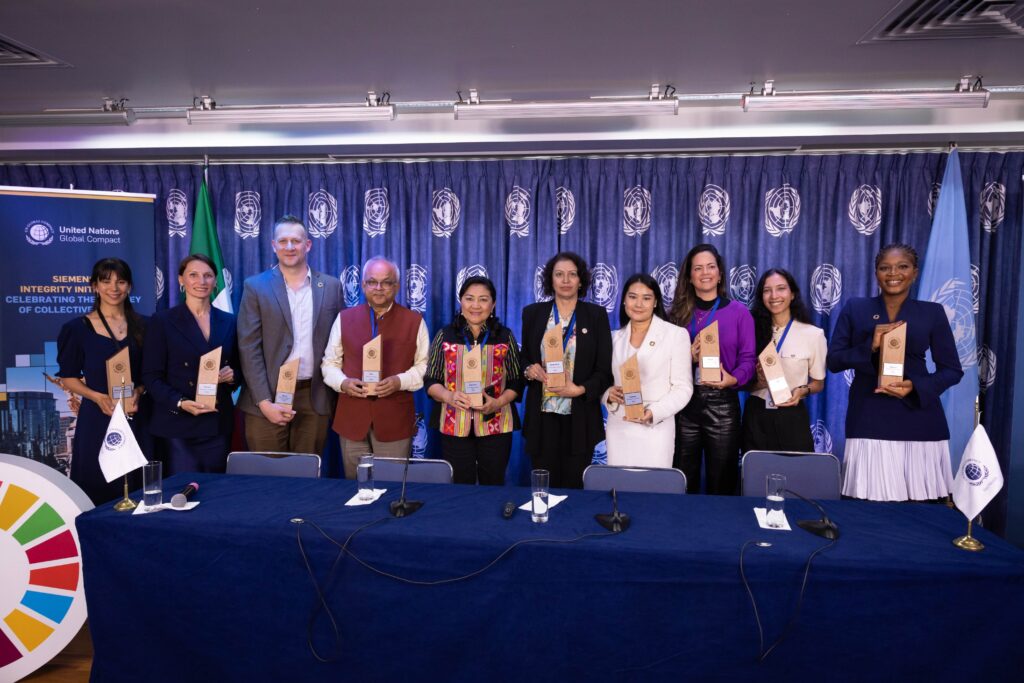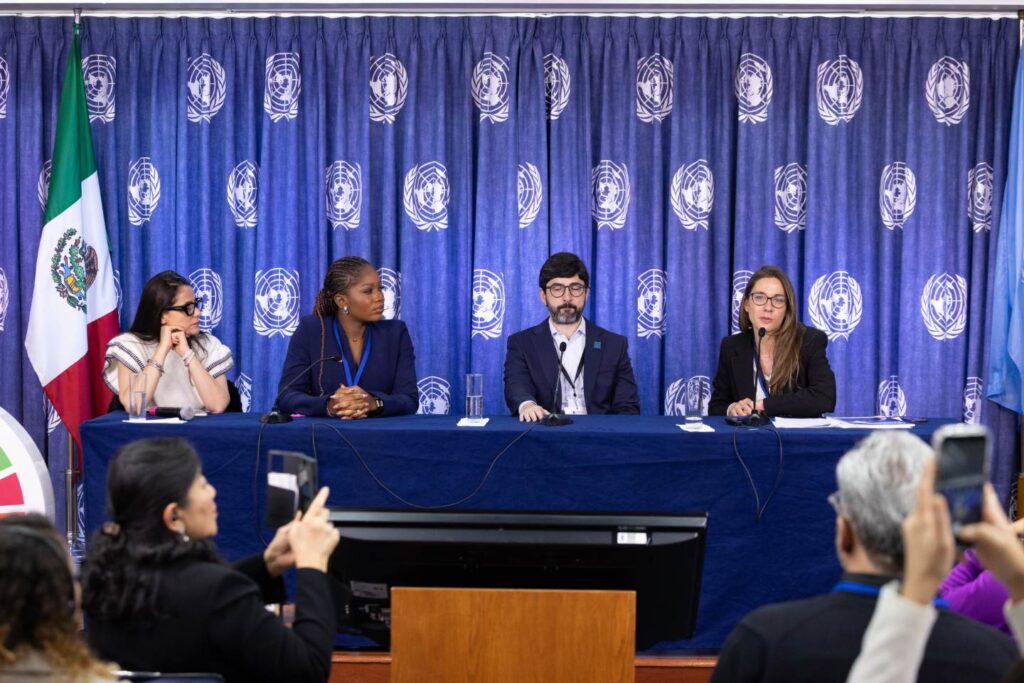Celebrating 15 Years of Collective Action: UN Global Compact Nigeria at Siemens Integrity Initiative Closeout
From 26 to 27 June 2025, the United Nations Global Compact Network Nigeria participated in the closeout event celebrating 15 years of the Siemens Integrity Initiative. The event, held in Mexico City, brought together the 13 Global Compact Country Networks that had implemented this initiative, along with partners and collaborators who supported its success over the years. The celebration marked a major milestone in advancing business integrity globally, reflecting on the journey and collective achievements since the program’s inception.
Stephanie Iwunze, Programmes Associate at the UN Global Compact Network Nigeria, represented the Executive Director/CEO on a panel discussion focused on incentivizing private sector integrity. During the session, she offered valuable insights into the Nigerian business environment, shedding light on the specific challenges and opportunities companies face in upholding integrity. She emphasized how the unique realities of the Nigerian private sector shape the approach to anti-corruption efforts, especially among MSMEs, and discussed the role of collective action in addressing these gaps. Stephanie also shared feedback from businesses that participated in the Nigerian Business Integrity Project, noting how the ACCA framework has helped them implement meaningful changes. In the Nigerian context, she explained, while awards and recognition for anti-corruption practices are still developing, many businesses—both large and small—see preferential procurement and access to ethical partnerships as meaningful incentives to uphold integrity, particularly within their supply chains.
She further noted that corruption is not a new conversation in Nigeria. Unlike some contexts where discussions on corruption are just gaining traction, the Nigerian private sector has long been engaged in the dialogue. What is evolving, however, is the way these discussions are tied to practical mechanisms such as procurement incentives, governance frameworks, and responsible business conduct. This perspective highlighted how integrity-driven reforms are being anchored not just in policy but in real business motivations.
Stephanie was joined on the panel by Barbara Marcen, Compliance Director at Baker & McKenzie Abogados, and Andrea Tourinho, a Brazilian executive specializing in compliance, internal audit, and data protection. The session was moderated by Laura Bertipaglia, Crime Prevention and Criminal Justice Program Officer at UNODC. Together, the panelists explored the importance of creating an enabling environment for ethical business practices and the role of compliance, incentives, and partnerships in achieving systemic change.

At the close of the two-day event, the UN Global Compact Network Nigeria was recognized for its sustained commitment to advancing anti-corruption in the private sector. This recognition reflected the country’s efforts—particularly through the implementation of the Nigerian Business Integrity Project from January to May 2025—carried out under the Siemens Integrity Initiative. The project allowed for in-depth engagement with Nigerian companies using the Anti-Corruption Collective Action (ACCA) framework developed by the UN Global Compact. In addition, the Network has also contributed to efforts aimed at strengthening corporate governance among SMEs in Nigeria. Working collaboratively with the Financial Reporting Council of Nigeria (FRC) and the Convention on Business Integrity, the Network played a key role in developing the SME Corporate Governance Guidelines—an initiative designed to help small and medium-sized enterprises remain aligned with responsible business practices and regulatory expectations, further reinforcing the broader anti-corruption agenda.
A legacy report was launched, capturing the 15-year journey of the Siemens Integrity Initiative and its impact across participating countries. In addition, a new e-course titled “Doing Business with Integrity,” co-developed by UNODC and the UN Global Compact, was unveiled to support ongoing education and capacity building for businesses around the world.
The close-out event served not only as a celebration but also as a reaffirmation of the global community’s commitment to transparency, accountability, and integrity in business. It was an opportunity for reflection, knowledge exchange, and renewed partnerships for future collective action.

